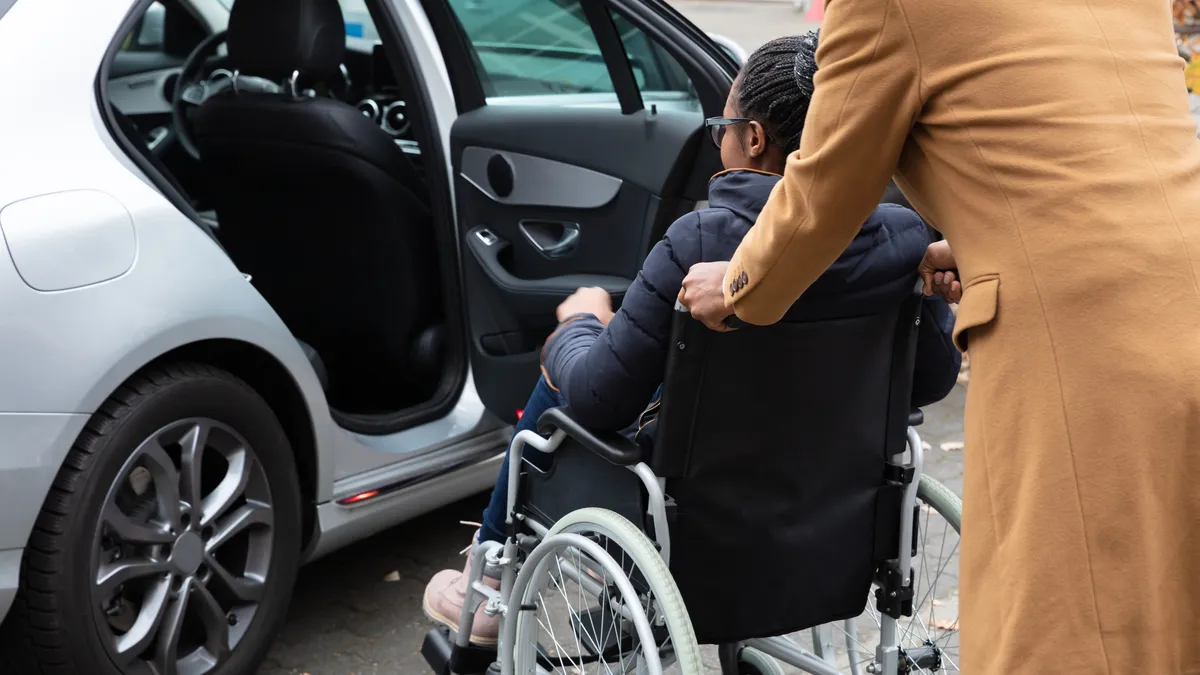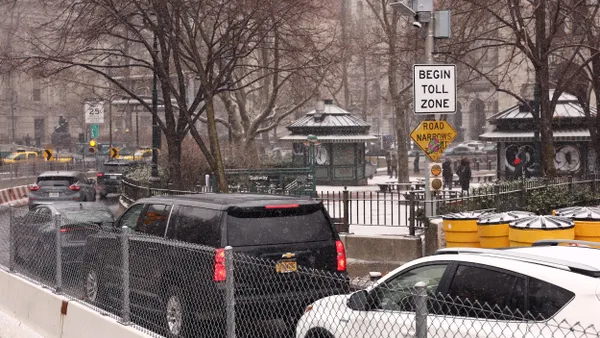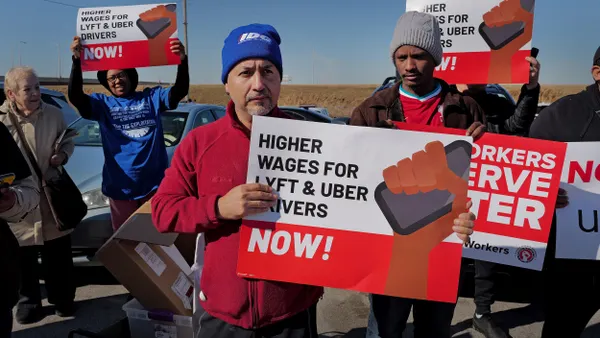Uber has agreed to a multimillion-dollar settlement with the U.S. Department of Justice to resolve a lawsuit alleging that the ride-hailing company violated the Americans with Disabilities Act, according to a DOJ press release issued Monday.
The suit, filed in November 2021, stemmed from Uber’s practice of charging wait time fees starting two minutes after an Uber driver arrives at the pickup location. The complaint, filed in the U.S. District Court for Northern California, alleged that Uber failed to ensure adequate vehicle boarding time for passengers with disabilities; ensure equitable fares for passengers with disabilities; and make reasonable modifications to its policies and practices of imposing wait time fees for passengers who, because of disability, require more time to board the vehicle.
Under the agreement, Uber will pay $1,738,500 to more than 1,000 riders who complained to Uber about being charged wait time fees because of disability, and $500,000 to other harmed individuals identified by the department. Additionally, Uber will credit the accounts of more than 65,000 eligible riders who signed up for the company’s waiver program, which allows disabled riders to avoid wait time fees, for double the amount of wait time fees they were ever charged.
“It has long been our policy to refund wait time fees for riders with a disability when they alerted us that they were charged, and prior to this matter being filed we made changes so that any rider who shares that they have a disability would have wait time fees waived automatically,” said Uber spokesperson Carissa Simons in an emailed statement.
Simons also pointed out that trips on wheelchair-accessible Uber WAV vehicles and Uber Assist trips, which are available in some major cities around the U.S., do not have any wait time fees by default.
Going forward, Uber will waive wait time fees for riders who certify that they or someone they frequently travel with needs more time because of a disability; ensure that refunds are easily available for anyone who does not have a waiver and is charged a wait time fee because of disability; advertise the fee waiver program; and train its customer service representatives on the waiver program and refund process to ensure that people with disabilities are not charged illegal fees.
“This agreement sends a strong message that Uber and other ridesharing companies will be held accountable if their services discriminate against people with disabilities,” said Assistant Attorney General Kristen Clarke of the Justice Department’s Civil Rights Division in the press release.
The National Disability Rights Network is excited to learn about the settlement, according to Eric Buehlmann, deputy executive director for public policy.
“Rideshare companies like Uber have opened the door to transportation options not available before; for instance, blind individuals now, since the onset of rideshare providers, have greater transportation options,” Buehlmann said in an emailed statement, adding that the organization “looks forward to see how the new waiver policy will enable all passengers with disabilities to use Uber without the fear of unknown waiting fees.”
Separately, a firm representing hundreds of clients filed a complaint against Uber last week “alleging that women passengers in multiple states were kidnapped, sexually assaulted, sexually battered, raped, falsely imprisoned, stalked, harassed, or otherwise attacked by Uber drivers.”












